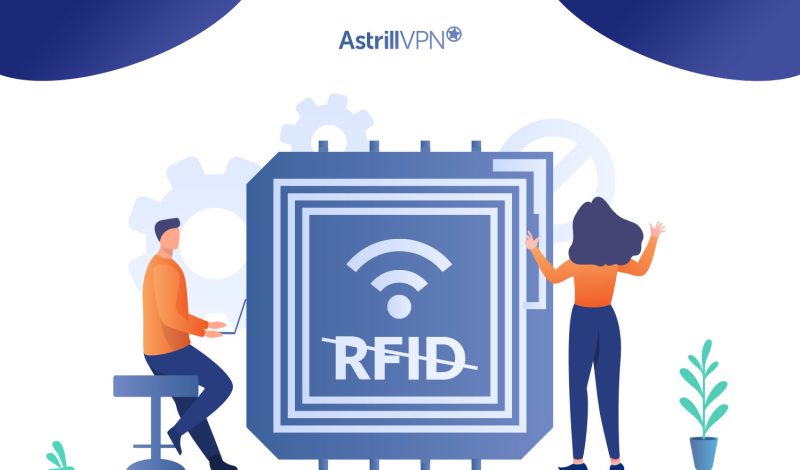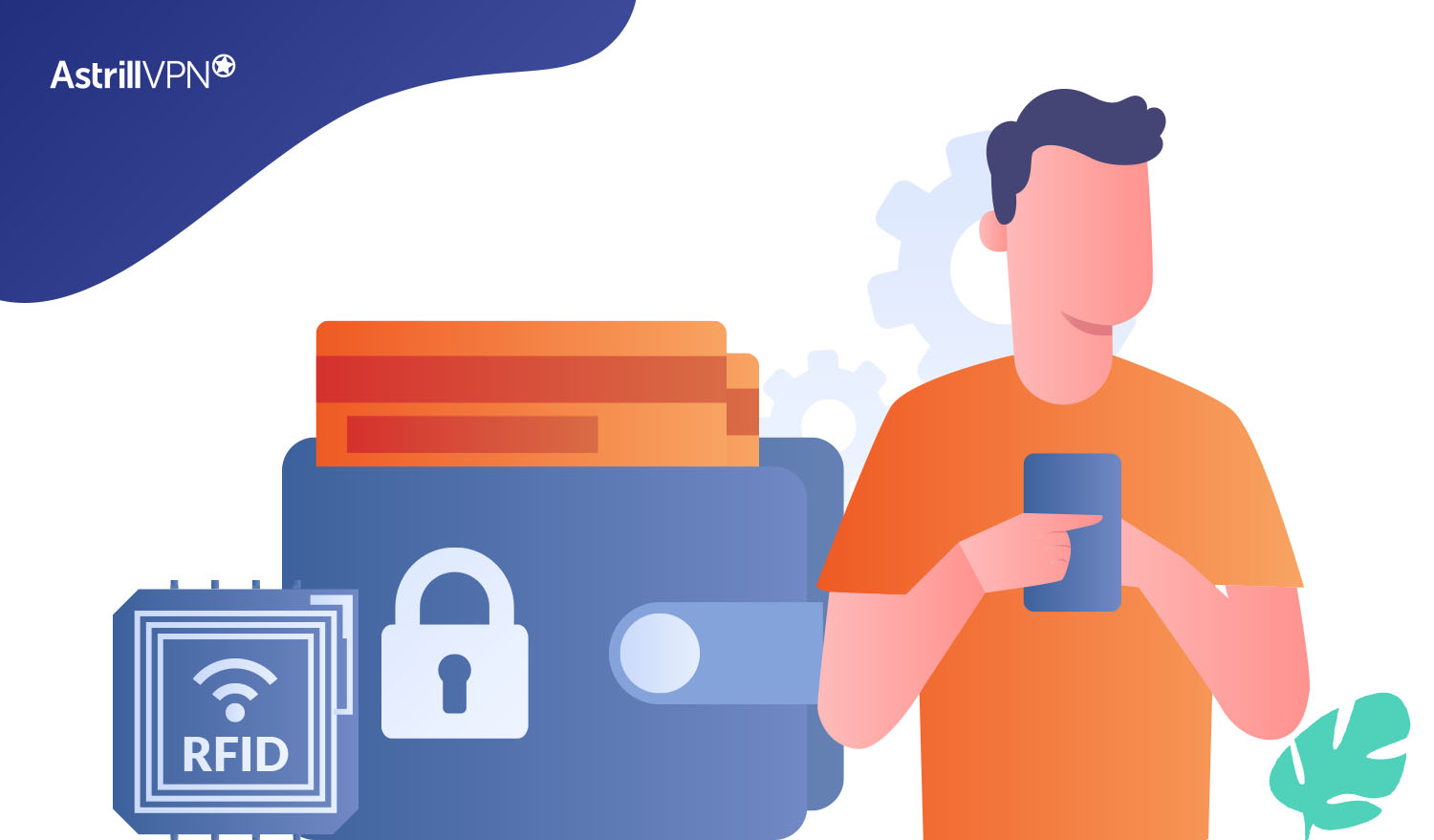What is RFID Blocking, and Do You Really Need it?

Arsalan Rathore

Transactions in a cashless environment can be completed quickly and easily with the help of contactless scanning. However, the widespread adoption of digital payment systems has prompted new concerns about fraudulent transactions.
RFID protection solutions, such as RFID-blocking wallets and passport covers, provide solutions to these issues. However, the technology’s efficacy is crucial to assess. In this guide, we’ll dive deeply into the details regarding the threats and how RFID blocking can be helpful.
Table of Contents
What is RFID?
Radio-frequency identification is abbreviated as “RFID” (RFID). This radio-wave-based system can detect and follow tags affixed to things and, by implication, humans. RFID technology has benefits even though it seems threatening. Many use it frequently when making daily cashless/ credit card purchases.
Some people are wary about using cards with RFID features because they are concerned that a cybercriminal nearby could steal their data. A “skimming” attack is when a thief uses a device to steal money from a person’s account while physically near the thief, such as while standing in line at a store.
Identity theft is another potential threat, as the effects of this crime often linger long after the victim’s personal information has been stolen.
What is an “RFID-Blocking Wallet”?
Since many consumers know that their credit card and passport data can be accessed wirelessly and remotely, they are taking precautions.
One option is to use a wallet, sleeve, or pouch that blocks radio frequency identification.
RFID-blocking wallets employ electromagnetic enclosure technology known as a Faraday cage to shield their contents from RFID signals. Credit cards would be protected from electric charges thanks to this device, which distributes electrostatic charges or radiation around the exterior of a cage.
Nevertheless, the chances of being a victim of RFID skimming are very low because the number of credit cards with RFID features is very small, and the new cards have an EMV chip that protects them from RFID thefts. But the chances of hackers stealing your ID or credit card details are still high. Cybercriminals are getting smarter, and protecting your online privacy from threats has become more challenging.

Do you need RFID blocking?
RFID technology has practical applications, such as quick and easy contactless payments, but several security concerns have been raised about the technology. One such issue is RFID skimming when a criminal uses an RFID scanning device to illegally scan a person’s credit card or passport to obtain personal information to make unauthorized purchases or commit identity theft.
The talk of the town about RIFD offenses is at odds with the practice of RIFD blocking. The theft of a victim’s credit card is the most common cause of non-contact crime.
The problem is that no proper evidence regarding such a crime can be used as a basis for this case. However, there are some unconfirmed cases where people have been victims of credit card skimming. Keeping this skimming thing in view, one should always be well informed and ready to protect their data, financials, and even their identity from being stolen by hackers or intruders, whatever you may want to call them.
What to Do If You Suspect RFID Skimming
Think you’ve been skimmed? Here’s what to do:
- Contact your bank or card provider immediately.
- Report the card as lost or stolen.
- Monitor your account for unauthorized transactions.
- Request a new card and change your online banking passwords.
Most institutions offer fraud protection and can help recover lost funds if reported promptly.
How to Prevent RFID skimming and Other Cybercrimes
Even if RFID-blocking wallets are available to prevent data theft by RFID skimming, RFID skimming is still a rare form of cybercrime in the current times. There are more significant cyber threats that you should be worried about, and you need to take proper measures to ensure your cyber security and your online privacy.
Some of the most common and worrisome cyber threats are:
Phishing
Phishing can take numerous shapes because it can be done through various mediums. They occur when a hacker poses as a trustworthy entity, such as a colleague or a well-known company, to trick you into giving up sensitive information or taking other actions. Emails, text messages, and phone calls are the most common channels for phishing scams.
Malware
Malicious software or data (sometimes shortened to “malware”) are computer programs or files designed to cause harm. Criminals and hackers use this tactic to gain unauthorized access to networks and steal sensitive information.
The malware injected into a device can spy on its owner and send personal information like passwords and bank account numbers to an attacker. The hacking of Home Depot’s customer database in September 2014 is an example of a malware assault. 56 million customers’ credit card details were stolen in a virus assault on one of its POS.
Advanced persistent threats
These are the most advanced forms of cyberattack. To acquire access to a network, advanced persistent threats (APT) may disguise themselves as another sort of malware or virus. This lets them steal as much information as possible without alerting the cybersecurity defense and causing much noise.
You can check out our Cybersecurity guide to learn about cyber threats and the types of cybersecurity mechanisms used to protect user data and privacy.
How a VPN Helps in Protecting your Online Identity?
One of the most significant ways to keep your personal information secure is to use a VPN. A reliable VPN like Astrill protects your online privacy by connecting you to the internet via a secure, encrypted network that is only accessible via a secure tunnel.
To hide your location from the websites you visit, you can use Astrill VPN to connect to a server in another country. As your IP and DNS are concealed, your Internet service provider (ISP) and any other third parties cannot track your online movements.
AstrillVPN shields users from cyber threats like malware and Phishing attacks by masking their online behavior. Additionally, it bypasses censorship, letting you access any content from any location.
Astrill offers a wide variety of optional security add-ons, advanced encryption methods, and a wide range of useful features, allowing its users to satisfy their needs.
Conclusion
Considering how quickly our world is changing, the digital world is currently very risky. There are a lot of public and commercial entities that are tracking your online movements and gathering information about you. Keeping your private data safe and secure is becoming more challenging in today’s ever-evolving world. The sophistication of cybercriminals grows daily; you need to take proper safeguards to avoid falling prey.
RFID blocking technology, VPN, antivirus software, regularly updated apps, and strong passwords will put you ahead of the curve in protecting your privacy. If you take the time to learn about potential online threats and take preventative measures, you can lessen your likelihood of falling prey to one.
FAQs
Q: How RFID Works in Real-Life Scenarios
Here are some real-life use cases:
- Public transport cards (like Metro cards)
- Hotel room key cards
- Employee access badges
- Retail inventory tracking
This helps readers understand how often RFID is part of their everyday life—sometimes without them even realizing it.
Q: Does RFID block phone signals?
Controllers carefully allocate the radio frequency spectrum to prevent devices from interfering with one another. So RFIDs usually are allocated a piece of the spectrum that will not interfere with cell phone signals.
Q: How serious is RFID blocking?
There’s no practical reason to spend money on an RFID-blocking gadget, but there’s also no danger in utilizing one.
Q: Can RFID go through walls?
Although RFID readers can see through walls, it is simple to limit their readings to a single room. Most RFID tags won’t work through walls made of concrete or cinder blocks.
Q: Do cell phones affect RFID?
850 MHz, 900 MHz, 1800 MHz, and 1900 MHz are the four most common frequency ranges utilized by mobile phone providers. To prevent radio frequency identification from interfering with other systems and other systems from affecting RFID, a specific band of the electromagnetic spectrum, between 865 and 868 MHz, was set aside for this purpose.
Q: Do RFID wallets ruin credit cards?
It’s false that RFID wallets are harmful to credit cards. Still, every wallet should be used with credit cards isolated from each other.
Q: Does aluminum foil block RFID?
Yes, aluminum foil may effectively shield RFID readers. Wrapping it around your cards or wallet is all needed to function.

No comments were posted yet